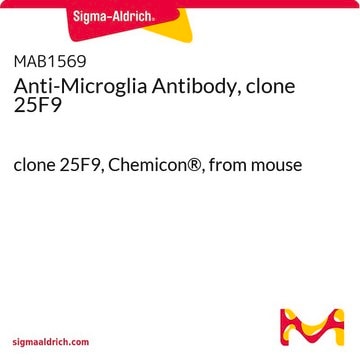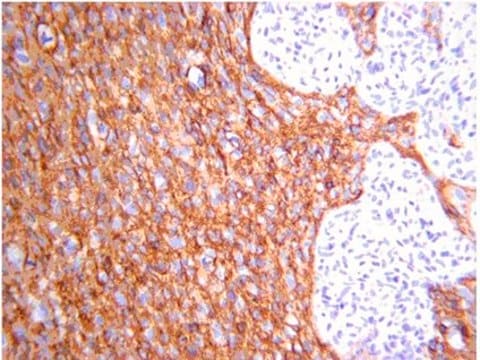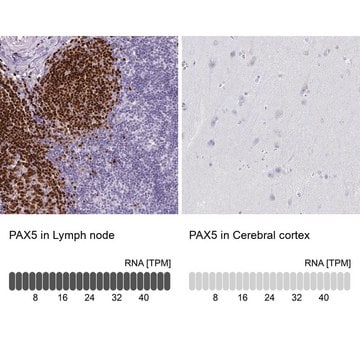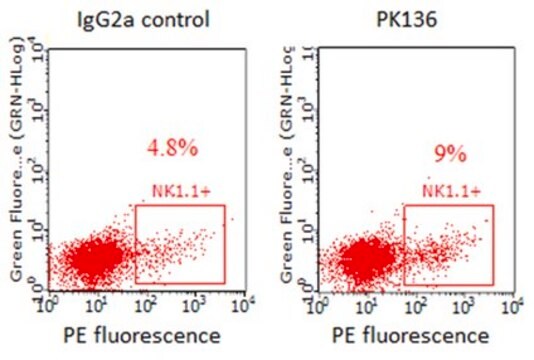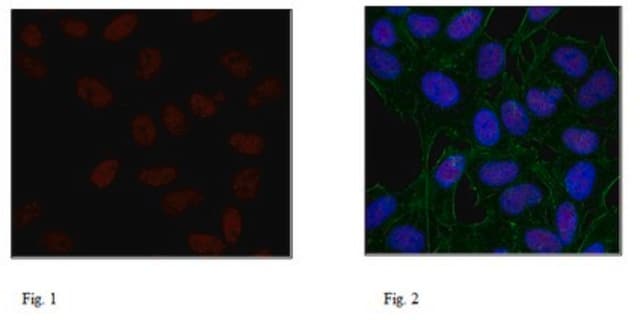MABF149A
Anti- CD161 (NK1.1) (mouse), PE, clone PK136 Antibody
clone PK136, from mouse, PE
Synonim(y):
Microtubule-associated protein 4, MAP-4, CD161 (NK1.1)
About This Item
Polecane produkty
pochodzenie biologiczne
mouse
Poziom jakości
białko sprzężone
PE
forma przeciwciała
purified antibody
rodzaj przeciwciała
primary antibodies
klon
PK136, monoclonal
reaktywność gatunkowa
mouse
opakowanie
antibody small pack of 25 μg
metody
flow cytometry: suitable
izotyp
IgG2aκ
numer dostępu UniProt
docelowa modyfikacja potranslacyjna
unmodified
informacje o genach
human ... MAP4(4134)
Powiązane kategorie
Opis ogólny
Immunogen
Zastosowanie
Inflammation & Immunology
Immunoglobulins & Immunology
Jakość
Flow Cytometry Analysis: 0.5 μg from a representative lot detected CD161 (NK1.1) in one million C57Bl/6 splenocytes stained with APC Anti-mouse CD3e.
Postać fizyczna
Przechowywanie i stabilność
Note: It is recommended to store the product undiluted at 2-8°C and protected from prolonged exposure to light. Do not freeze.
Inne uwagi
Oświadczenie o zrzeczeniu się odpowiedzialności
Not finding the right product?
Try our Narzędzie selektora produktów.
Kod klasy składowania
12 - Non Combustible Liquids
Klasa zagrożenia wodnego (WGK)
nwg
Certyfikaty analizy (CoA)
Poszukaj Certyfikaty analizy (CoA), wpisując numer partii/serii produktów. Numery serii i partii można znaleźć na etykiecie produktu po słowach „seria” lub „partia”.
Masz już ten produkt?
Dokumenty związane z niedawno zakupionymi produktami zostały zamieszczone w Bibliotece dokumentów.
Nasz zespół naukowców ma doświadczenie we wszystkich obszarach badań, w tym w naukach przyrodniczych, materiałoznawstwie, syntezie chemicznej, chromatografii, analityce i wielu innych dziedzinach.
Skontaktuj się z zespołem ds. pomocy technicznej